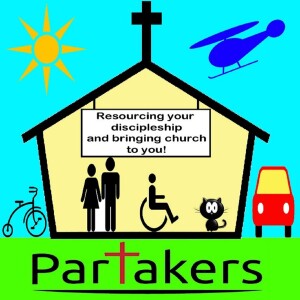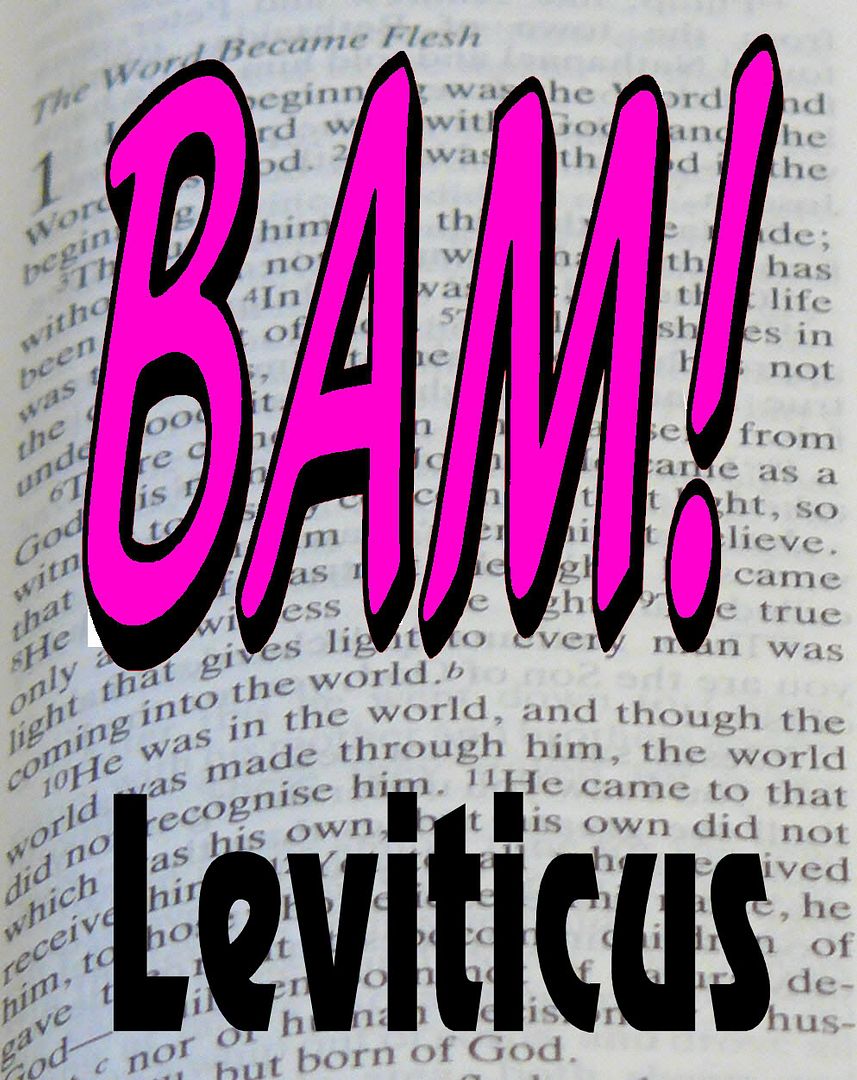
432.3K
Downloads
3368
Episodes
G’day and welcome to Partakers Christian Podcasts! Join us for uplifting Bible teaching, inspiring readings, heartfelt worship, powerful prayers, and fascinating church history. Whether you’re new to faith or growing deeper in your journey, we’re here to encourage and equip you. 🎧 Tune in, interact, and be inspired—wherever you are in the world.
G’day and welcome to Partakers Christian Podcasts! Join us for uplifting Bible teaching, inspiring readings, heartfelt worship, powerful prayers, and fascinating church history. Whether you’re new to faith or growing deeper in your journey, we’re here to encourage and equip you. 🎧 Tune in, interact, and be inspired—wherever you are in the world.
Episodes

Monday Nov 10, 2025
Bible Reading - Psalm 40
Monday Nov 10, 2025
Monday Nov 10, 2025
Psalm 40
For the Chief Musician. A Psalm by David.
40:1 I waited patiently for Yahweh.
He turned to me, and heard my cry.
40:2 He brought me up also out of a horrible pit, out of the miry clay.
He set my feet on a rock,
and gave me a firm place to stand.
40:3 He has put a new song in my mouth,
even praise to our God.
Many shall see it, and fear,
and shall trust in Yahweh.
40:4 Blessed is the man who makes Yahweh his trust,
and doesn’t respect the proud, nor such as turn aside to lies.
40:5 Many, Yahweh, my God,
are the wonderful works which you have done,
and your thoughts which are toward us.
They can’t be declared back to you.
If I would declare and speak of them,
they are more than can be numbered.
40:6 Sacrifice and offering you didn’t desire.
You have opened my ears.
You have not required burnt offering and sin offering.
40:7 Then I said, “Behold, I have come.
It is written about me in the book in the scroll.
40:8 I delight to do your will, my God.
Yes, your law is within my heart.”
40:9 I have proclaimed glad news of righteousness in the great assembly.
Behold, I will not seal my lips,
Yahweh, you know.
40:10 I have not hidden your righteousness within my heart.
I have declared your faithfulness and your salvation.
I have not concealed your loving kindness
and your truth from the great assembly.
40:11 Don’t withhold your tender mercies from me, Yahweh.
Let your loving kindness and your truth continually preserve me.
40:12 For innumerable evils have surrounded me.
My iniquities have overtaken me, so that I am not able to look up.
They are more than the hairs of my head.
My heart has failed me.
40:13 Be pleased, Yahweh, to deliver me.
Hurry to help me, Yahweh.
40:14 Let them be disappointed and confounded together
who seek after my soul to destroy it.
Let them be turned backward and brought to dishonor who delight in my hurt.
40:15 Let them be desolate by reason of their shame that tell me, “Aha! Aha!”
40:16 Let all those who seek you rejoice and be glad in you.
Let such as love your salvation say continually, “Let Yahweh be exalted!”
40:17 But I am poor and needy.
May the Lord think about me.
You are my help and my deliverer.
Don’t delay, my God.
Right mouse click or tap here to save this Podcast as a MP3.

Monday Nov 10, 2025
Bible Thought - Leviticus 16 A God of Joy and His people
Monday Nov 10, 2025
Monday Nov 10, 2025
A God of Joy and His people
Introduction
Book of Leviticus
Click or Tap here to listen to or save this as an audio mp3 file

Sunday Nov 09, 2025
Bible Reading - Psalm 144
Sunday Nov 09, 2025
Sunday Nov 09, 2025
Psalm 144
A psalm of David.
1 Praise the Lord, who is my rock.
He trains my hands for war and gives my fingers skill for battle.
2 He is my loving ally and my fortress, my tower of safety, my rescuer. He is my shield, and I take refuge in him. He makes the nations submit to me.
3 O Lord, what are human beings that you should notice them,
mere mortals that you should think about them?
4 For they are like a breath of air;
their days are like a passing shadow.
5 Open the heavens, Lord, and come down.
Touch the mountains so they billow smoke.
6 Hurl your lightning bolts and scatter your enemies!
Shoot your arrows and confuse them!
7 Reach down from heaven and rescue me;
rescue me from deep waters, from the power of my enemies.
8 Their mouths are full of lies;
they swear to tell the truth, but they lie instead.
9 I will sing a new song to you, O God!
I will sing your praises with a ten-stringed harp.
10 For you grant victory to kings!
You rescued your servant David from the fatal sword.
11 Save me! Rescue me from the power of my enemies.
Their mouths are full of lies; they swear to tell the truth, but they lie instead.
12 May our sons flourish in their youth like well-nurtured plants.
May our daughters be like graceful pillars, carved to beautify a palace.
13 May our barns be filled with crops of every kind.
May the flocks in our fields multiply by the thousands, even tens of thousands,
14 and may our oxen be loaded down with produce.
May there be no enemy breaking through our walls,
no going into captivity, no cries of alarm in our town squares.
15 Yes, joyful are those who live like this!
Joyful indeed are those whose God is the Lord.
Right mouse click or tap here to save/download this Psalm as a MP3 file

Sunday Nov 09, 2025
Bible Thought - Leviticus 9-10 Obedient Service of God
Sunday Nov 09, 2025
Sunday Nov 09, 2025
Obedient Service of God
Introduction
Take for instance the food laws. We know in the New Testament that all food is now permissible, whereas under the Old Testament, certain foods were not permitted to be eaten. In the New Testament, the Apostle Peter had a dream in which all food was declared clean!It is also wise, not to see them as merely a list of "not do" statements, but also as "do statements".
Rather, we should see them as a love letter from a God who wants to save His people from distress and anxiety in order to give them a life of peace, unity, health and a joyful life in all its fullness.All these laws were to lead ancient Israel to be a holy nation. Holiness was about being set apart for a purpose and making wise, conscious decisions about what was right or wrong. It involved being obedient to God and keeping His decrees and regulations.
Being holy, involved having a lifestyle, which was contrary to the cultures surrounding them. To be holy was a lifestyle choice of worship, to reflect their holy God.They were called to be loyal! Called to be distinct! Called to worship! What has all this got to do with us? Where does the Day of Atonement and these laws fit into the life of a Christian in the 21st century? We will take a look in the third part in al little while!
Outline:
Introduction
- Great joy Leviticus 9:22-24
- Great tragedy Leviticus 10:1-11
- A God of Judgement
- A God of Wrath
- So what’s all this got to do with us today?
- New Covenant?
- Called to service
- Judged for our service
Conclusion
Listen to the mp3 file to see what this fabulous piece of Scripture is about and how it is relevant to you today...
Tap or click here to save/download this as an audio MP3 file

Saturday Nov 08, 2025
Bible Reading- Psalm 129
Saturday Nov 08, 2025
Saturday Nov 08, 2025
Psalm 129
A song for pilgrims ascending to Jerusalem.
Right mouse click to save/download this Psalm as a MP3 file
From my earliest youth my enemies have persecuted me.
Let all Israel repeat this:
From my earliest youth my enemies have persecuted me,
but they have never defeated me.
My back is covered with cuts, as if a farmer had plowed long furrows.
But the Lord is good; he has cut me free from the ropes of the ungodly.
May all who hate Jerusalem be turned back in shameful defeat.
May they be as useless as grass on a rooftop,
turning yellow when only half grown,
ignored by the harvester, despised by the binder.
And may those who pass by refuse to give them this blessing:
"The Lord bless you; we bless you in the Lord's name."
Right mouse click or tap here to save/download this Psalm as a MP3 file

Saturday Nov 08, 2025
Bible Book Explanation - Leviticus
Saturday Nov 08, 2025
Saturday Nov 08, 2025
Old Testament
Book of Leviticus
Summarised in 1 Minute
Key Verses
Leviticus 17:11 - For the life of the flesh is in the blood; and I have given it to you on the altar to make atonement for your souls: for it is the blood that makes atonement by reason of the life. Leviticus 20:7-8 - "‘Sanctify yourselves therefore, and be holy; for I am Yahweh your God. You shall keep my statutes, and do them. I am Yahweh who sanctifies you.
Summary
The book of Leviticus is God's guidebook for the nation of Israel, showing them how to worship, serve and obey Him. Fellowship with Almighty God was through sacrifice and obedience, to reveal His holiness to other nations.
Click or tap here to save this Podcast as a MP3.

Friday Nov 07, 2025
Bible Reading - Psalm 148
Friday Nov 07, 2025
Friday Nov 07, 2025
Psalm 148
1 Praise the Lord! Praise the Lord from the heavens! Praise him from the skies!
2 Praise him, all his angels! Praise him, all the armies of heaven!
3 Praise him, sun and moon! Praise him, all you twinkling stars!
4 Praise him, skies above! Praise him, vapors high above the clouds!
5 Let every created thing give praise to the Lord, for he issued his command, and they came into being.
6 He set them in place forever and ever. His decree will never be revoked.
7 Praise the Lord from the earth, you creatures of the ocean depths,
8 fire and hail, snow and clouds, wind and weather that obey him,
9 mountains and all hills, fruit trees and all cedars,
10 wild animals and all livestock, small scurrying animals and birds,
11 kings of the earth and all people, rulers and judges of the earth,
12 young men and young women, old men and children.
13 Let them all praise the name of the Lord. For his name is very great; his glory towers over the earth and heaven!
14 He has made his people strong, honoring his faithful ones- the people of Israel who are close to him. Praise the Lord!
Right mouse click or tap here to save/download this Psalm as a MP3 file

Wednesday Nov 05, 2025
Bible Reading - Psalm 108
Wednesday Nov 05, 2025
Wednesday Nov 05, 2025
Psalm 108
1-2 I'm ready, God, so ready, ready from head to toe.
Ready to sing, ready to raise a God-song:
"Wake, soul! Wake, lute! Wake up, you sleepyhead sun!"
3-6 I'm thanking you, God, out in the streets,
singing your praises in town and country.
The deeper your love, the higher it goes;
every cloud's a flag to your faithfulness.
Soar high in the skies, O God!
Cover the whole earth with your glory!
And for the sake of the one you love so much,
reach down and help me-answer me!
7-9 That's when God spoke in holy splendor:
"Brimming over with joy, I make a present of Shechem,
I hand out Succoth Valley as a gift.
Gilead's in my pocket, to say nothing of Manasseh.
Ephraim's my hard hat, Judah my hammer.
Moab's a scrub bucket- I mop the floor with Moab, Spit on Edom,
rain fireworks all over Philistia."
10-11 Who will take me to the thick of the fight?
Who'll show me the road to Edom?
You aren't giving up on us, are you, God? refusing to go out with our troops?
12-13 Give us help for the hard task; human help is worthless.
In God we'll do our very best; he'll flatten the opposition for good.
Right mouse click to save/download this Psalm as a MP3 file

Tuesday Nov 04, 2025
Bible Reading - Psalm 122
Tuesday Nov 04, 2025
Tuesday Nov 04, 2025
Psalm 122
A song for pilgrims ascending to Jerusalem. A psalm of David.
1 I was glad when they said to me,
"Let us go to the house of the Lord."
2 And now here we are,
standing inside your gates, O Jerusalem.
3 Jerusalem is a well-built city;
its seamless walls cannot be breached.
4 All the tribes of Israel-the Lord's people-
make their pilgrimage here.
They come to give thanks to the name of the Lord,
as the law requires of Israel.
5 Here stand the thrones where judgment is given,
the thrones of the dynasty of David.
6 Pray for peace in Jerusalem.
May all who love this city prosper.
7 O Jerusalem, may there be peace
within your walls and prosperity in your palaces.
8 For the sake of my family and friends,
I will say, "May you have peace."
9 For the sake of the house of the Lord our God,
I will seek what is best for you, O Jerusalem.
Right mouse click to save/download this Psalm as a MP3 file

Monday Nov 03, 2025
Bible Reading - Psalm 116
Monday Nov 03, 2025
Monday Nov 03, 2025
Psalm 116
1-6 I love God because he listened to me,
listened as I begged for mercy.
He listened so intently
as I laid out my case before him.
Death stared me in the face,
hell was hard on my heels.
Up against it, I didn't know which way to turn;
then I called out to God for help:
"Please, God!" I cried out.
"Save my life!"
God is gracious—it is he who makes things right,
our most compassionate God.
God takes the side of the helpless;
when I was at the end of my rope, he saved me.
7-8 I said to myself, "Relax and rest.
God has showered you with blessings.
Soul, you've been rescued from death;
Eye, you've been rescued from tears;
And you, Foot, were kept from stumbling."
9-11 I'm striding in the presence of God,
alive in the land of the living!
I stayed faithful, though bedeviled,
and despite a ton of bad luck,
Despite giving up on the human race,
saying, "They're all liars and cheats."
12-19 What can I give back to God
for the blessings he's poured out on me?
I'll lift high the cup of salvation—a toast to God!
I'll pray in the name of God;
I'll complete what I promised God I'd do,
and I'll do it together with his people.
When they arrive at the gates of death,
God welcomes those who love him.
Oh, God, here I am, your servant,
your faithful servant: set me free for your service!
I'm ready to offer the thanksgiving sacrifice
and pray in the name of God.
I'll complete what I promised God I'd do,
and I'll do it in company with his people,
In the place of worship, in God's house,
in Jerusalem, God's city.
Hallelujah!




